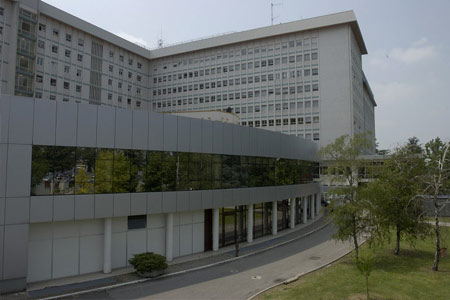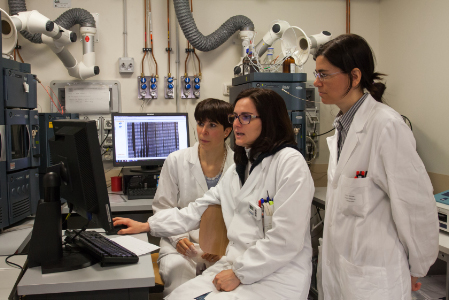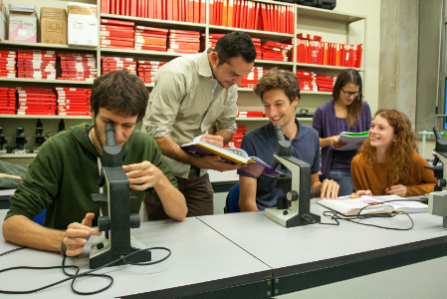Mesenchymal stem cells (MSC) represent a promising therapeutic approach for neurological autoimmune diseases and previous studies have shown that treatment with bone marrow-derived MSC (BM-MSC) induces immune modulation and reduces disease severity in experimental autoimmune encephalomyelitis (EAE), the animal model of multiple sclerosis. In this project we studied the effect of adipose-derived MSC (ADSC), a cell population that is easily accessible and abundant in the adipose tissue. Intravenous administration of ADSCs before disease onset significantly reduced EAE severity in mice immunized with PLP139-131 or MOG35-55 peptide. EAE blockade in both relapsing-remitting and chronic disease models was due to immune modulation and decreased spinal cord inflammation and demyelination. ADSCs preferentially homed into lymphoid organs, but migrated also inside the inflamed central nervous system (CNS). Most importantly, administration of ADSCs in chronic established EAE significantly ameliorated the disease course and reduced both demyelination and axonal loss, and induced a Th2-type cytokine shift in T cells. A relevant subset of ADSCs expressed activated alpha4 integrins and adhered to inflamed brain venules in intravital microscopy experiments. Results obtained in intravital microscopy experiments as well as with bioluminescence imaging showed that alpha4 integrins control ADSCs accumulation in inflamed CNS. Importantly, we found that ADSCs produce basic fibroblast growth factor, brain-derived growth factor and platelet-derived growth factor and ADSCs infiltration within demyelinated areas was accompanied by increased number of endogenous oligodendrocyte progenitors. Enhancement of ADSCs cell migration capabilities by transfection of ADSCs with alpha4 chain of VLA-4 integrin showed an increase of cell accumulation in the CNS and a statistically significant enhancement of the reduction of EAE severity.
In conclusion, the results demonstrate that ADSCs have therapeutic potential by a bimodal mechanism, through the suppression of the autoimmune response in early phases of disease as well as the induction of local neuroregeneration by endogenous progenitors in animals with established disease. Overall our data indicate that ADSCs may represent a valuable tool for stem cell-based therapy in chronic inflammatory diseases of the CNS.







